Invited Speakers

Assoc.
Prof. Pavel
Loskot
Zhejiang University -
University of Illinois
Urbana-Champaign Institute,
China
Biography: Pavel Loskot joined the ZJU-UIUC Institute in January 2021 as an Associate Professor after being 14 years with Swansea University in the UK. He received his PhD degree in Wireless Communications from the University of Alberta in Canada, and the MSc and BSc degrees in Radioelectronics and Biomedical Electronics, respectively, from the Czech Technical University of Prague in the Czech Republic. In the past 25 years, he was involved in numerous collaborative research and development projects, and also held a number of paid consultancy contracts with industry. He is the Senior Member of the IEEE, Fellow of the Higher Education Academy in the UK, Recognized Research Supervisor of the UK Council for Graduate Education, and the IARIA Fellow. His current research interests focus on mathematical and probabilistic modeling, statistical signal processing and classical machine learning for multi-sensor data.
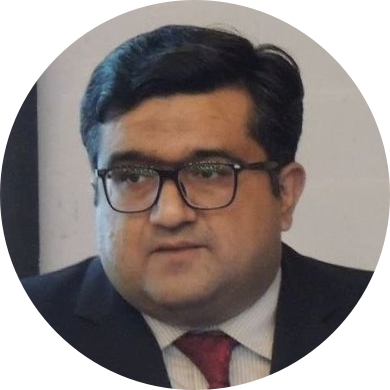
Assoc.
Prof. Syed Farooq Ali
University of Management &
Technology, Pakistan
Biography: Dr. Syed Farooq Ali
has around 18+ years of teaching
and research experience. His
areas of specialization include
Computer Vision, Digital Image
Processing, Medical Imaging, and
Image & Video Coding. He did his
BS from NUCES- FAST, Lahore, and
later earned an MS degree from
LUMS with Dean’s Honor List and
4th position out of a batch of
around 130 graduate students.
During his stay in MS, he was on
a LUMS fellowship. He also
completed his MS from Ohio State
University, (Col.), USA.
Moreover, he passed the Ph.D.
Comprehensive Exam (Qualifier
Exam) from Ohio State
University, Col. USA. Later, he
transferred his Ph.D. from Ohio
State University USA to UMT and
completed it.
During his
graduate studies at LUMS and
Ohio State University, he
studied a total of 34 courses.
Out of these, he studied ten
courses related to his depth
area (area of interest) that
included Computer Vision,
Medical Imaging, Image and Video
Coding, Digital Image
Processing, Artificial
Intelligence, Pattern
Recognition, Machine Learning,
Computer Graphics, Signals and
Systems, and Data Mining.
Currently, he is Associate
Professor and Chair Vision and
Image Processing Research Group
at UMT. He also served two times
as a Director Projects. Dr. Ali
has around 39 publications
including 23 journals, a book
chapter, and 15 international
conference papers. Dr. Ali is
also a reviewer of many
international conferences and
journals. He also won 8 Fundings
from National Grassroots ICT
Research Initiative (NGIRI) for
Final Year Projects. Details
available at my webpage
https://sites.google.com/site/farooq1us/home?authuser=0
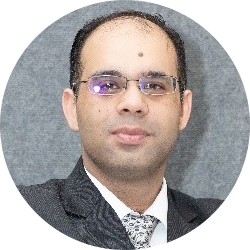
Prof.
Anand Nayyar
Duy Tan
University, Vietnam
Biography: Dr. Anand Nayyar
received Ph.D (Computer Science)
from Desh Bhagat University in
2017 in the area of Wireless
Sensor Networks, Swarm
Intelligence and Network
Simulation. He is currently
working in School of Computer
Science-Duy Tan University, Da
Nang, Vietnam as Professor,
Scientist, Vice-Chairman
(Research) and Director- IoT and
Intelligent Systems Lab. A
Certified Professional with 280+
Professional certifications from
CISCO, Microsoft, CompTIA,
Amazon, Alibaba Cloud, Oracle,
Google, Salesforce, Tableau,
FinOps, Beingcert, EXIN, GAQM,
Cyberoam and many more.
Published more than 300+
Research Papers in various
High-Quality ISI-SCI/SCIE/SSCI
Impact Factor- Q1, Q2, Q3, Q4
Journals cum Scopus/ESCI indexed
Journals, 80+ Papers in
International Conferences
indexed with Springer, IEEE and
ACM Digital Library, 60+ Book
Chapters in various SCOPUS/WEB
OF SCIENCE Indexed Books with
Springer, CRC Press, Wiley, IET,
Elsevier with Citations: (Google
Scholar): 23000+, H-Index: 77
and I-Index: 311; (Scopus):
12700+; H-index: 60. Member of
more than 60+ Associations as
Senior and Life Member like:
IEEE (Senior Member) and ACM
(Senior Member). He has
authored/co-authored cum Edited
70+ Books of Computer Science.
Associated with more than 600+
International Conferences as
Programme
Committee/Chair/Advisory
Board/Review Board member. He
has completed 1 Grassroot and 1
ASEAN Project. He has 18
Australian Patents, 16 German
Patents, 4 Japanese Patents, 44
Indian Design cum Utility
Patents, 13 UK Patents, 1 USA
Patent, 3 Indian Copyrights and
2 Canadian Copyrights to his
credit in the area of Wireless
Communications, Artificial
Intelligence, Cloud Computing,
IoT, Healthcare, Drones,
Robotics and Image Processing.
He has guided more than 200+
Undergraduate Students (B.S.
Degree), 30 MCA, 7 M.S. Students
and completed 1 Ph.D Student and
currently 3 Ph.D Scholars are
working under him. He has
completed 4 Research Grants
Projects including 1 ASEAN and 1
Glocal 30 Project and 1
Grassroot Project in DTU.
Awarded 56 Awards for Teaching
and Research—Young Scientist,
Best Scientist, Best Senior
Scientist, Asia Top 50
Academicians and Researchers,
Young Researcher Award,
Outstanding Researcher Award,
Excellence in Teaching, Best
Senior Scientist Award, DTU Best
Professor and Researcher Award-
2019, 2020-2021, 2022,
2022-2023, 2023-2024,
Distinguished Scientist Award by
National University of
Singapore, Obada Prize 2023,
Lifetime Achievement Award 2023,
2024; Asian Admirable Achievers
2024; Distinguished Academic
Leader 2024, Lifetime
Achievement Award 2024 and many
more.
He is listed in Top 2%
Scientists as per Stanford
University (2020, 2021, 2022,
2023, 2024, 2025), Ad Index
(Rank No:1 Duy Tan University,
Rank No:2 Computer Science in
Viet Nam) and Listed on
Research.com (Top Scientist of
Computer Science in Viet Nam-
National Ranking: 2; D-Index:
56; World Ranking: 3694).
He
is acting as Associate Editor
for Computer Communications
(Elsevier), International
Journal of Sensor Networks
(IJSNET) (Inderscience), Tech
Science Press- IASC, Cogent
Engineering, Human Centric
Computing and Information
Sciences (HCIS), IEEE
Transactions on Artificial
Intelligence (IEEE TAI),
Indonesian Journal of Electrical
Engineering and Computer
Science, IJFC, IJISP, IJDST,
IJCINI, IJGC, IJSIR, IJBDCN,
IJNR, IJSI, IJIES. He is acting
as Managing Editor of IGI-Global
Journal, USA titled
“International Journal of
Knowledge and Systems Science
(IJKSS)”. He has reviewed more
than 5700+ Articles for diverse
Web of Science and Scopus
Indexed Journals. He is
currently researching in the
area of Wireless Sensor
Networks, Internet of Things,
Swarm Intelligence, Cloud
Computing, Artificial
Intelligence, Drones,
Blockchain, Cyber Security,
Healthcare Informatics, Big Data
and Wireless Communications.
Invited Speakers of 2025
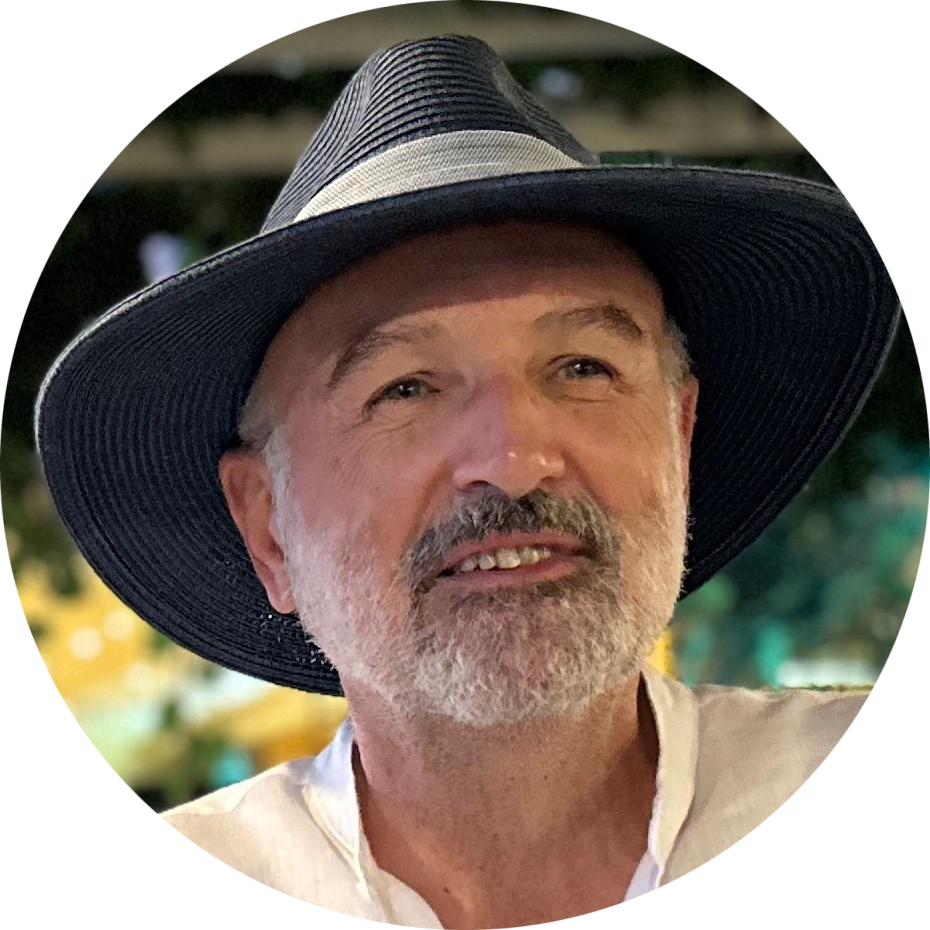 |
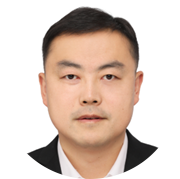 |
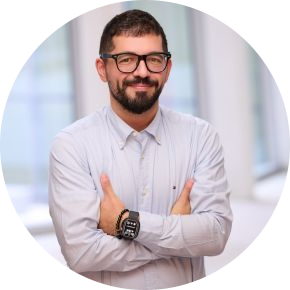 |
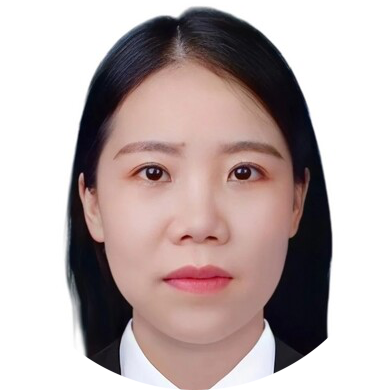 |
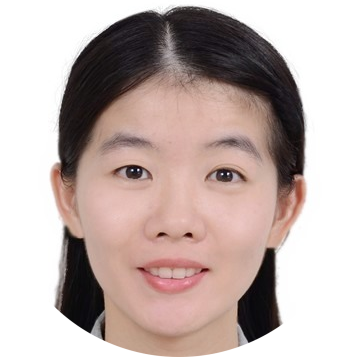 |
| Prof. George C. Polyzos |
Prof. Wenzhe Gu |
Dr. Ahmad Bazzi |
Dr. Jianchao Zheng |
Dr. Zehong Chen |
